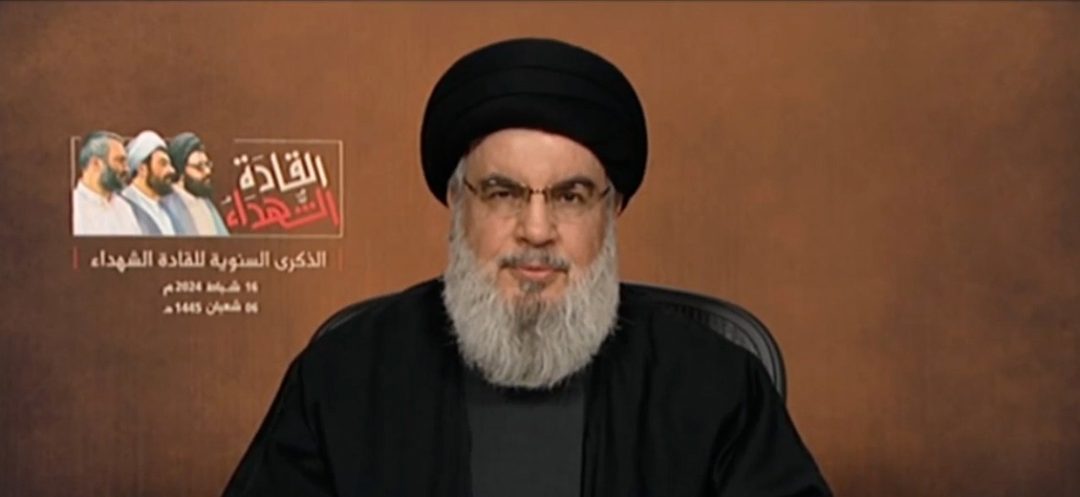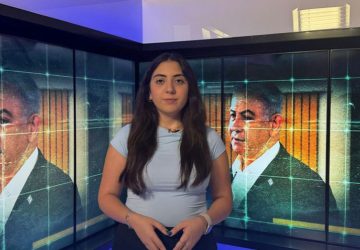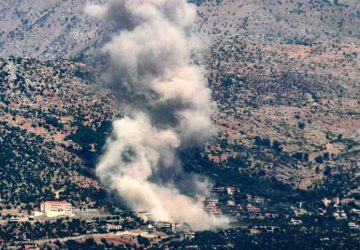During his speech commemorating Hezbollah’s “martyred fighters” on Friday, the group’s Secretary General, Hassan Nasrallah, vowed to retaliate for Wednesday’s deadly Israeli raids on Nabatiyeh and Sawaneh, in which more than 12 people were killed, including three Hezbollah fighters.
“The enemy should understand that it went too far by targeting civilians. The price of the blood that has been shed will be blood,” Nasrallah warned, accusing Israel of intentionally targeting civilians.
He claimed that Israel’s objective through targeting civilians is “to put pressure” on Hezbollah to stop its military activities on the border.
“Let the ally and the enemy listen carefully… The response to the massacre is to continue, to expand, and to escalate the battle, and the enemy (Israel) should expect that,” he said.
He warned Israel that his Iranian-backed party possessed firepower that can hit targets all the way from Kyriat Shmona (in the north) to Eilat (in the south), stressing that “the front will not stop, regardless of how much you kill and how much you threaten.”
In an initial retaliation to the attack on Nabatiyeh, Hezbollah opened a fire barrage at Kyriat Shmona in northern Israel, which Nasrallah described “as only a first response,” implicitly threatening the Hebrew state with more attacks against civilian targets.
Speaking via a giant TV screen in front of a large crowd of supporters, Nasrallah was once again at pains to justify what he sees as the merits of the battle he had decided to wage against Israel since October 8, 2023.
In this context, he did not hesitate to attribute to the Hebrew State the intention of driving all Palestinians to neighboring countries through its operation against Hamas in Gaza and to brandish, in the face of the Lebanese, the scarecrow of a new influx of Palestinian refugees.
He claimed that Lebanon has only two options in dealing with Israel: “to surrender to the enemy or resist,” with the latter option being the most dignified and less costly.
He drew a parallel between Israel’s 1982 invasion of Lebanon and the ongoing conflict on the border. “If it wasn’t for the resistance then, Israeli settlements would have existed in southern Lebanon,” Nasrallah claimed as part of his bid to justify the existence of his party’s so-called military resistance and the losses that Lebanon and the Lebanese are sustaining since Hezbollah decided to open its presumed “front in support” of Gaza on October 8.
On the internal political front, Nasrallah sought to be reassuring, claiming, ironically, that he was not seeking to “capitalize on the victories in the south to score political points” or “impose a president of the Republic.”





